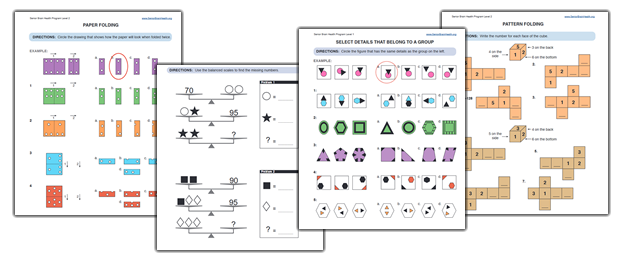Critical thinking skills are essential for navigating the complexities of life with clarity and confidence. These skills encompass a range of cognitive abilities that enable us to analyze information, evaluate arguments, and solve problems effectively. In this article, we'll explore the various critical thinking skills and how they contribute to sharper thinking and decision-making.
Analytical Thinking: Breaking Down Complex Problems
Analytical thinking involves breaking down complex problems into smaller components to understand them better. It allows us to identify patterns, draw connections, and make informed decisions. By honing our analytical skills, we can approach challenges with a systematic and logical mindset, leading to more effective problem-solving.
Creative Thinking: Embracing Innovation and Exploration
Creative thinking involves generating innovative ideas and solutions to problems. It encourages us to think outside the box, explore multiple perspectives, and embrace ambiguity. By nurturing our creative abilities, we can uncover new possibilities and approaches, fostering innovation and adaptation in our personal and professional lives.
Logical Reasoning: Making Sense of Information
Logical reasoning involves making sense of information by identifying logical relationships and drawing valid conclusions. It helps us avoid common pitfalls like fallacies and biases, allowing us to form well-reasoned judgments and arguments. By honing our logical reasoning skills, we can navigate complex issues with clarity and precision.
Problem-Solving: Tackling Challenges with Confidence
Problem-solving skills enable us to tackle challenges effectively by identifying goals, evaluating alternatives, and implementing solutions. They empower us to approach problems with confidence and resilience, knowing that we have the tools to overcome obstacles and achieve our objectives. By cultivating our problem-solving abilities, we can navigate life's challenges with grace and adaptability.
Putting Critical Thinking into Practice: Everyday Applications
Putting critical thinking into practice doesn't have to be daunting. Here are some practical ways to incorporate critical thinking into your daily routine:
- Solving Puzzles: Engage in puzzles and brain teasers that challenge your cognitive abilities. Shop specialty curated thinking puzzles designed specifically to keep the brain healthy and sharp. These books are more effective than standard puzzle books because they target a wide variety of critical and creative thinking skills and are created by a company with 60+ years of experience teaching and developing critical and creative thinking skills.
Shop Level 1 book | Shop Level 2 book
(Image Placeholder: Level 1 book cover) | (Image Placeholder: Level 2 book cover) - Reading and Analyzing: Read articles, books, or academic papers and critically evaluate the arguments presented. Look for evidence, consider counterarguments, and form your own conclusions.
- Engaging in Discussions: Participate in thought-provoking discussions with friends, family, or online communities. Explore different perspectives, challenge assumptions, and practice active listening.
- Playing Strategy Games: Play strategy games like chess or Balance Benders that require strategic thinking and problem-solving skills.
By incorporating these practices into your daily life, you can cultivate a sharper, more agile mind and maintain your cognitive health over time.
Embrace the Power of Critical Thinking
In summary, critical thinking skills are indispensable tools for navigating the complexities of life with clarity and confidence. By honing our analytical, creative, logical, and problem-solving abilities, we empower ourselves to approach challenges with resilience and adaptability. Explore our selection of critical thinking activities at SeniorBrainHealth.org and start your journey towards a sharper, more vibrant mind today.




